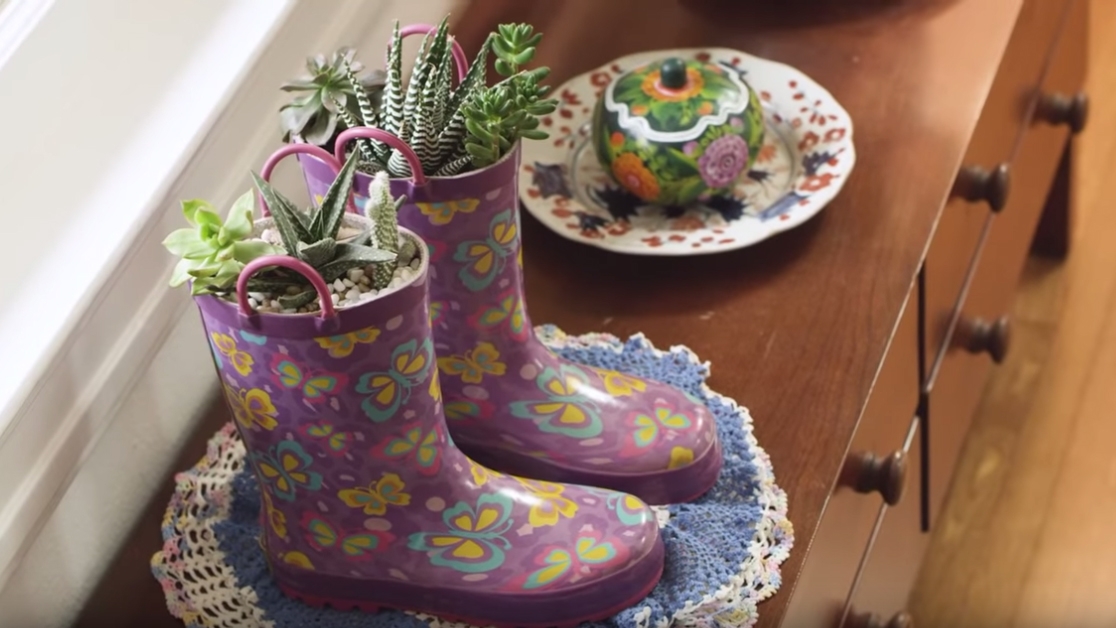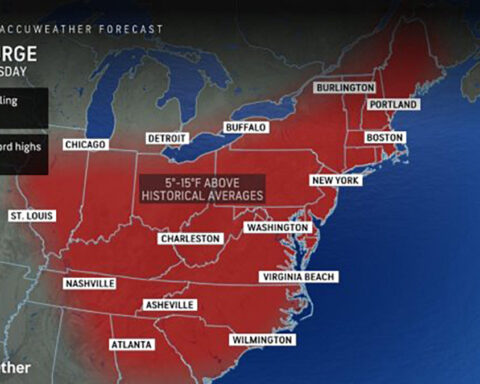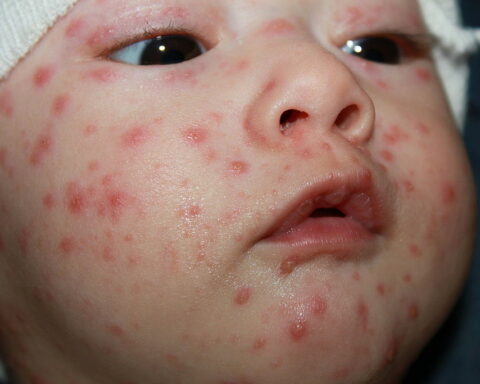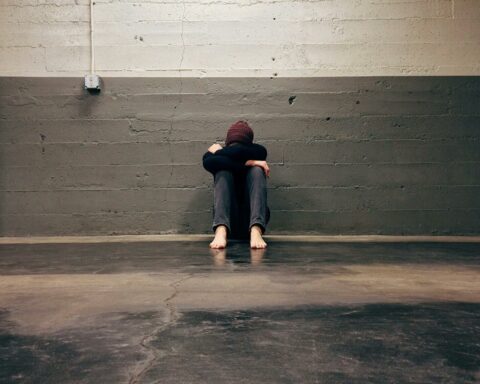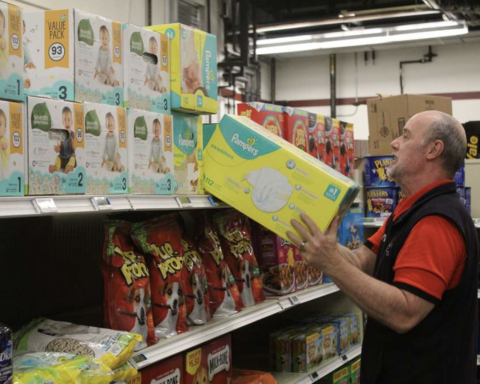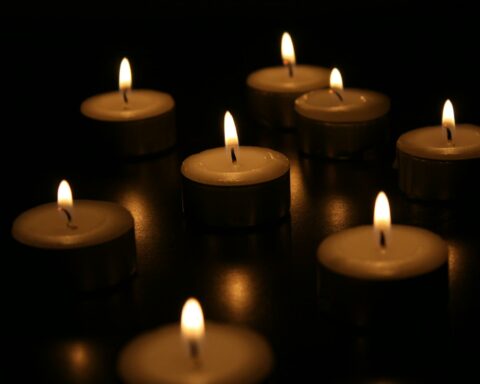Podcast (top-left-corner): Play in new window | Download
UPDATE 4/5/2020: Since the recording of this episode, the MNA has released an additional statement concerning distribution of Personal Protective Equipment to staff. See below.
We speak, this episode with Amber VanBramer, RN on the Massachusetts Nurses Association (MNA) Berkshire Medical Center (BMC) Bargaining Committee, about the MNA’s response to BMC’s decision to limit the more effective N95 respiratory masks to staff working directly with those who have contracted, or are suspected of having contracted, COVID-19.
We also speak with Joe Markman, Associate Director, Communications for the MNA, as well as hear Berkshire Health System’s response to the MNA’s criticism.
Berkshire Health System responded to the Greylock Glass’ request for comment by e-mail:
Berkshire Health Systems places the highest priority on the safety of our patients and staff, and we have instituted Personal Protective Equipment usage policies that exceed the recommendations of the Centers for Disease Control and the Massachusetts Department of Public Health, including requiring all staff, regardless of whether they have patient contact, to wear a surgical mask while at work.
The CDC and DPH have both indicated that the use of a surgical mask, eye protection, such as goggles or a face shield, and gloves, provide appropriate protection for healthcare workers who are providing care for patients, exclusive of those who are COVID-19 positive or being ruled out.
Unfortunately, the MNA’s calculation of the burn rate of existing N-95 masks, if used for all who have any contact with any patient, is considerably in error. They claim Berkshire Health Systems would have a 28-day supply if all staff with any patient contact wore them, but in fact the burn rate would see us run out of N-95 masks in nearly two weeks, with a highly uncertain ability to rebuild the stock and maintain that level of usage.
On the triaging of patients, we are following the guidelines from the CDC and DPH, and we speak daily with representatives from the Mass. DPH.
Berkshire Health Systems, April 2, 2020
UPDATE:
In addition to the release of a letter directed at Darlene Rodowicz, the MNA has revealed that a nurse at BMC has tested positive for COVID-19, after being told, she says, that staff on her unit were told not to wear respiratory protection of any kind on her floor. According to MNA’s April 3 statement:
For one 20-year RN at BMC, the issue of COVID-exposure due to lack of PPE is all too familiar. She worked on a “non-COVID floor” with no protection and is now COVID-positive.
“I had been feeling very sick, trying for weeks to get tested, and finally this week was allowed to get tested and it came back positive for COVID-19,” explained the nurse, who has chosen to remain anonymous. “On my unit, we’re supposed to be a ‘non-COVID’ unit. However, on this unit, myself and other staff were exposed to patients who were COVID-positive. We were in close contact with patients but weren’t wearing any kind of masks, because at the time that I was exposed, management was telling us that we shouldn’t even wear surgical masks on my unit.”
“I developed a bad cough and was told to go to work with a surgical mask,” she continued. “Now that I’ve tested positive, I’m being told that I must use my earned time, even though this was clearly a work exposure. BMC should be providing every staff member with protection, especially N95 masks. If I had been protected, I wouldn’t have gotten sick and I wouldn’t be out of work right now.”
N95 Respirators and Surgical Masks
An N95 mask or N95 respirator is a particulate-filtering facepiece respirator that meets the N95 standard of the U.S. National Institute for Occupational Safety and Health (NIOSH) air filtration rating, meaning that it filters at least 95% of airborne particles, while not resistant to oil like the P95. It is the most common particulate-filtering facepiece respirator. This kind of respirator protects against particulates, but not gases or vapors.
From Wikipedia
From the Food and Drug Administration
- Surgical Mask and Gown Conservation Strategies – Letter to Healthcare Providers
- FAQs on Shortages of Surgical Masks and Gowns
- Emergency Use Authorization for Personal Protective Equipment
- CDC Prevention and Treatment
Full Text of April 3 Release
Management at Berkshire Medical Center Still Refusing to Implement Universal N95 Masking Policy for all RNs
as COVID-19 Pandemic Takes Deeper Root in Hospital
Refusal happening even as 86 of the hospital’s 101 quarantined and COVID-exposed RNs were working in non-COVID units at the time of their exposures; meanwhile, management rations its stockpile of 16,700 N95 masks and transitions another floor to “all COVID-19”
PITTSFIELD, Mass. — In an ongoing effort to win the on-the-job protections that their nurse colleagues at Berkshire Medical Center (BMC) so desperately need in order to stay safe while caring for their patients during this overwhelming COVID-19 crisis, the elected nurse leaders for the RNs’ union, the Massachusetts Nurses Association (MNA), confronted hospital management yet again on Thursday, April 2, via letter, and laid out exactly what is needed to maximize safety for RNs. This included:
- Universal N95 precautions
- A non-punitive COVID-19 absence policy
- An end to “cancelling nurses” and sending them home, and instead use all available RNs to assist on COVID-19 and “rule-out” units where extra nursing support is desperately needed
The letter from the union [included at the end of this release] was accompanied by a request that hospital management respond to the letter and engage with the union’s elected leaders by noon on Friday, April 3. Management never responded to or acknowledged the letter.
Meanwhile, in their own data that the hospital submits to the MNA daily, management reported that of the 101 nurses who have been quarantined due to exposure to a COVID-positive patient, an astounding 86 of them worked on non-COVID floors and units at the time of their exposure — clear proof that staff throughout the hospital are at risk of contracting and spreading the virus, primarily through interaction with asymptomatic patients.
Even still, management refuses to acknowledge the reality of its own data and continues to make dangerous decisions and implement short-sighted policies that jeopardize caregivers. These include:
- Dictating that surgical masks will suffice for nurses and caregivers who work throughout the hospital (i.e., in all units other then COVID-positive designated units).
- Changing their policies so that COVID-exposed nurses are now required to work without a two-week quarantine. Meaning, if infected, nurses will be in the hospital and working — using a surgical mask only — while they wait to see if they develop symptoms of COVID-19. These two weeks are well documented as being the most dangerous period for asymptomatic transmissions.
- Changing their policies so that COVID-positive nurses who are out of work must now use their own earned benefit time to recover.
- Creating additional COVID floors and units while rationing the more than 16,700 N95 masks that management says it has stockpiled.
“We understand the problems with the N95 supply chain, and nurses are being incredibly careful about conserving the masks,” said Mark Brodeur, a float pool RN and union leader. “But management should be giving N95 masks to every staff member who enters a patient room in order to stop the spread and flatten the curve right here inside of our own hospital. Keeping us safe now will allow us to keep caring for our patients.”
“We have to stop the spread of Coronavirus amongst our staff,” added Barbara Connor, an endoscopy RN and union leader. “Universal personal protective equipment [PPE] is the only way this will happen.”
For one 20-year RN at BMC, the issue of COVID-exposure due to lack of PPE is all too familiar. She worked on a “non-COVID floor” with no protection and is now COVID-positive.
“I had been feeling very sick, trying for weeks to get tested, and finally this week was allowed to get tested and it came back positive for COVID-19,” explained the nurse, who has chosen to remain anonymous. “On my unit, we’re supposed to be a ‘non-COVID’ unit. However, on this unit, myself and other staff were exposed to patients who were COVID-positive. We were in close contact with patients but weren’t wearing any kind of masks, because at the time that I was exposed, management was telling us that we shouldn’t even wear surgical masks on my unit.”
“I developed a bad cough and was told to go to work with a surgical mask,” she continued. “Now that I’ve tested positive, I’m being told that I must use my earned time, even though this was clearly a work exposure. BMC should be providing every staff member with protection, especially N95 masks. If I had been protected, I wouldn’t have gotten sick and I wouldn’t be out of work right now.”
April 2 Letter to BMC Management Regarding PPE, Need for Universal N95 Masking Policy, and Additional Steps to Ensure Safety of Nurses and Hospital Staff:
Dear Darlene Rodowicz,
On behalf of the MNA nurses of Berkshire Medical Center, we are writing to convey our emergent concern for the health and safety all of BMC’s frontline staff during this COVID-19 pandemic. Messages and protocols that frontline staff have received from BMC administration regarding the use of Personal Protective Equipment (PPE) are inconsistent with universal precautions that we know are necessary in order to protect against the spread of this highly infectious virus. We are painfully aware of the need to conserve PPE and work to find additional supplies. However, we cannot allow you to compromise the health and safety of our frontline caregivers. Too many of us are out of work, sick and/or quarantined due to inadequate PPE provided by BMC. In Italy, where frontline staff had more available PPE than we do here in the US, 30% of the healthcare workers still became ill. We cannot afford the loss of more frontline healthcare workers as we prepare for a possible surge of patients. On March 27, management reported to us that at that time, BMC held a stockpile of 16,700 N95 masks. That is why we are urging you to immediately adopt universal N95 precautions and other steps to protect our healthcare workforce now, flatten the curve, and protect our ability to care for the patients who will need us during the days, weeks, and months ahead.
Universal N95 Precautions
We are gratified that since March 27, BMC has been offering surgical masks and eye protection to all staff, in a significant improvement over the prior policy. However, we know that surgical masks do not offer effective protection against COVID-19. We appreciate BMC’s efforts to segregate patients who have tested positive and who are suspected COVID-19 onto separate units. However, it is a fallacy to believe that the coronavirus only appears in patients on “COVID-19/rule-out” units. At the end of this letter, please find evidence for asymptomatic transmission of coronavirus.* 75% of BMC nurses who have been exposed to patients who later tested positive were caring for patients on “non-COVID-19/rule-out” units. In recognition of the highly contagious nature of the virus and the likelihood of asymptomatic exposure, all inpatient and outpatient frontline staff should be provided with N95 masks, eye protection, hospital issued scrubs and gowns.
Non-Punitive COVID-19 Absence Policy
Judging from the language in a 3.31.20 email to all staff, there seems to be an attempt by Human Resources to default to the assumption that employees who test positive must have contracted the virus in the community rather than in the hospital and therefore, the employer will not consider their illness occupational. For weeks, our committee has raised concerns regarding the co-mingling of patients, failure to triage and segregate patients, and most significantly, the lack of appropriate PPE being provided to frontline staff. To suggest that none of these issues may have contributed to an increased likelihood of viral spread among the workforce is both ridiculous and reprehensible. Now, frontline staff members are being told they must use their own earned time to self-quarantine and recover. This is unacceptable. BMC is putting us in the direct path of this novel virus, and the employer should be supporting us, not penalizing us.
All Hands on Deck
We cannot imagine why, in the middle of this pandemic, BMC is choosing to send nurses home instead of sending them to floors that need the extra help! We are urging you to immediately stop cancelling nurses, and to recognize that the needs of isolation patients on COVID-19/rule-out units require extra nursing support. Staffing should be increased to reflect the acuity and complexity of these patients. Our members are ready, willing and able to provide the support needed, but too many of them are currently being told that their skills are not needed.
We are doing our best to provide needed care with limited resources, but we need to know that you will work to protect front line staff so that we can be here to care for our community when the surge hits. Please let us know by noon on April 3 how you plan to address these issues.
Sincerely,
Alex Neary, RN Gerri Jakacky, RN Mark Brodeur, RN Kathy Cimini, RN
Barbara Connor, RN Marie Geary, RN Marie Mathews, RN Ruth O’Hearn, RN
Cathy Pease, RN Rebecca Schaffrick, RN Amber VanBramer, RN Darlene Wurtemberger, RN
Full Text of April 1 MNA Release
Berkshire Medical Center Nurses Call for Universal N95 Masking for Frontline Staff and Outside Patient Triage Area in Face of High Risk of Coronavirus (COVID-19) Exposure
Concerns about widespread COVID-19 exposure prompt BMC nurses to seek higher protection standards than hospital policy
PITTSFIELD, Mass. – Registered nurses at Berkshire Medical Center represented by the Massachusetts Nurses Association are calling for stronger personal protective equipment (PPE) standards for frontline nurses and healthcare workers and a triage area outside the hospital to limit the exposure of coronavirus (COVID-19) to patients, staff and the community.
BMC instituted an expanded personal protective equipment (PPE) policy on March 26, requiring all staff in contact with patients to wear surgical masks, eye protection and gloves. However, only BMC staff who are in contact with COVID-19 positive patients or patients being ruled out for COVID-19 are provided the N95 masks that offer the highest level of protection from infection when used in combination with eye protection, a gown and gloves. In fact, BMC is not even giving N95 masks to every nurse in the emergency department.
“We all know that coronavirus is a highly infectious and stealthy virus that can be spread by asymptomatic people, leaving frontline healthcare workers and hospital patients at risk unless we have the highest standard of protective equipment,” said Alex Neary, an ICU RN and Co-Chair of the BMC MNA Bargaining Committee.
“Every nurse and healthcare worker on the front lines at Berkshire Medical Center must be able to use personal protective equipment that can effectively guard against the widespread risk of exposure to COVID-19,” Neary said. “At this point, to be safe and limit the spread among staff and our community, we must assume any patient could have the virus and act accordingly.”
- 97 BMC nurses had been furloughed and instructed to self-quarantine after potential exposure to COVID-19 as of March 28. All were exposed without PPE. Of those, 75 nurses DO NOT work on units designated for COVID-19 positive or COVID-19 rule-out patients.
| Hospital units without Access to N95s |
| 2S |
| 2N Pedi |
| MBU (Mother Baby) |
| 2E Medical |
| 2E Rehab |
| 3E Surgical/Ortho |
| Emergency Department |
| McGee |
| Jones 2&3 |
| 4West Tele |
| 5W |
- According to BMC’s PPE supply numbers provided to the MNA, if the hospital changed its policy to reflect universal N95 masking for those in contact with any patient, the hospital would still have a 28-day supply of N95 masks.
- Acknowledging a looming shortage of PPE and committing to universal N95 masks for frontline staff would prompt additional donations of equipment. A local company is already preparing to manufacture N95 masks.
- BMC nurses requested the enhanced PPE policy in a meeting with management on March 27. Management did not agree.
- BMC nurses also called again on March 27 for a triage area to be set up outside the emergency department. Management had said it was discussing the topic after a previous MNA BMC meeting on March 20 but the hospital has yet to take action. Patients with respiratory problems should not be entering the main ED lobby. Instead there should be a designated area outside of the entrance to the ED to screen and triage patients with respiratory symptoms, so they do not comingle with other ED patients.
Areas of Progress/Appreciation
BMC nurses acknowledge and appreciate areas in which the hospital has made progress and/or has supported frontline staff during this outbreak:
- The hospital has ensured staff on furlough for potential exposure to COVID-19 receive their full pay by supplementing workers’ comp.
- The hospital has agreed to supplement the essential personnel childcare the state has provided and make sure staff have no-charge childcare during this crisis.
- The hospital has worked to create a significant number of negative pressure rooms for COVID-19 patients that help limit infection exposure.
Background on Asymptomatic COVID-19
Infectious disease experts studying COVID-19 have detailed how infected people can be asymptomatic for periods of time and be able to spread the virus to others:
- A study in the journal Emerging Infectious Diseases shows more than 10% of patients become infected from somebody who has the virus but does not yet have symptoms.
- Japanese researchers looked at 634 passengers who tested positive for COVID-19 on the Diamond Princess cruise ship. They found that 17.9% of these passengers were asymptomatic.
- Dr. William Hillmann, associate inpatient physician director at Massachusetts General Hospital, told the Guardian, “A significant proportion of people who are totally asymptomatic are contagious for some portion of time. We just don’t know [for how long] at this point, because we don’t have the kind of testing available to screen for asymptomatic infections.”
- A study of COVID-19 cases in China in the New England Journal of Medicine found that even among patients who required hospital admission for treatment of COVID-19, fewer than half (44%) had fevers at the time of presentation.
Massachusetts Nurses Association PPE Recommendations
Despite the CDC’s change in its PPE guidelines during the outbreak, the MNA maintains that healthcare workers should be provided the PPE under previous CDC guidelines and World Health Organization standards. The MNA also calls for everyone frontline healthcare worker to be able to use an N95 mask to limit spread within their facility and flatten the curve in their communities.
More information can be found at www.massnurses.org/COVID-19.
From MNA Letter to Gov. Baker on March 24, 2020:
“The shortage of PPE is widely known at this point. Our health care workers are being put in the position of caring for their patients without the proper supplies to protect themselves and their patients. Over the past several days, we have worked with many groups to collect and distribute disposable N95 masks to frontline health care workers providing direct care to patients, but there are still not enough. And while the public’s generous offers of hand-sewn masks are appreciated, these are not appropriate for frontline health care workers. The N95 masks have micron filters made from melt blown fabric. This is necessary to filter out sub-micron particles. Homemade surgical masks do not offer this level of protection. Instead, for those providing direct patient care, we should be focusing on increasing the supply of N95 masks as well as Power Air-Purifying Respirators (PAPRs) which safeguard health care workers against contaminated air. The benefit of the PAPRs is that unlike N95 masks which should be disposed of after each use, the PAPRs can be safely cleaned and reused
“Beyond the shortages, however, there are additional concerns that must be addressed. Protective clothing including scrubs and gowns should be donned and doffed on location to reduce the risk of spreading the virus outside the health care facility. Showers should also be made available on site to health care staff. And given the shortage in paper gowns, we recommend that cloth gowns be utilized, as they can be laundered after each shift just as scrubs are laundered.”
N95 respirators and surgical masks (face masks) are examples of personal protective equipment that are used to protect the wearer from airborne particles and from liquid contaminating the face. Centers for Disease Control and Prevention (CDC) National Institute for Occupational Safety and Health (NIOSH) and Occupational Safety and Health Administration (OSHA) also regulate N95 respirators.
It is important to recognize that the optimal way to prevent airborne transmission is to use a combination of interventions from across the hierarchy of controls, not just PPE alone.




